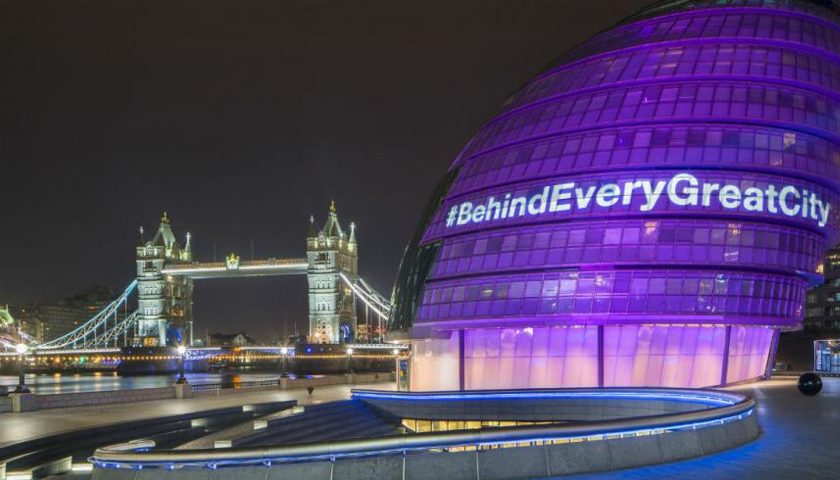Hospitals, museums, offices, libraries, social housing and universities are amongst the public buildings and small businesses set to become more energy efficient thanks to a new £500 million-pound investment fund.
A recent study from the Green Finance Taskforce revealed that many public-sector organisations and small businesses want to install energy-efficiency measures, but often can’t access the necessary finance.
To address this the Mayor, through the European Regional Development Fund (ERDF) and Amber Infrastructure Group, has worked with key commercial lenders including Lloyds Bank, National Westminster Bank, Santander UK, Sumitomo Mitsui Banking Corporation and Triodos Bank to deliver the UK’s largest ever dedicated investment fund for urban energy efficiency measures.
The Mayor’s Energy Efficiency Fund (MEEF) provides flexible and competitive finance and offers a wide range of funding options, through its consortium of funders, to deliver new low carbon technology or upgrade existing low carbon infrastructure, with an investment period of up to 20 years
Measures that could be funded include battery storage, electric vehicle rapid charging infrastructure, decentralised energy, small-scale renewables, energy efficiency, and low-carbon data centres for boroughs. The funding is also open to small businesses and energy service companies operating across London.
The fund builds on the success of the Mayor’s LEEF scheme (London Energy Efficiency Fund),which helped St. George’s University Hospital Foundation Trust in Tooting install a new power and heating system that stores and recycles heat produced from generating electricity, and is set to save the Trust £1.3 million a year on energy bills and reduce over 7,000 tonnes in carbon emissions.
The Mayor of London, Sadiq Khan, said: “This is the largest fund of its kind in the UK that will help deliver the low-carbon, sustainable projects and infrastructure London needs to cut energy costs and reduce carbon emissions across our universities, hospitals, museums and small businesses. It is a great example of how the public and private sectors can come together to create millions of pounds of investment for low-carbon projects and help fast track London towards our goal of becoming a zero-carbon city by 2050. “
Leading infrastructure specialist, and established partner to public sector organisations in London since 2006, Amber Infrastructure Group (Amber) manages the MEEF on behalf of the Mayor’s Office.
Joanne Patrick, MEEF Director at Amber Infrastructure Group, said: “MEEF seeks to address market failure in London’s low-carbon sector by providing flexible and competitive finance to enable, accelerate or enhance viable green infrastructure across London’s boroughs. It’s a key part of the Mayor’s strategy to improve the capital’s existing building stock and improve the energy performance of new buildings – helping homes, businesses and public buildings to use less energy and save money on energy bills. We have a proven track record of helping London get greener, having already mobilised over £350 million in low-carbon projects to reduce CO2 emissions by over 35,000 tonnes – equivalent to taking 32,000 cars off the road.”
St George’s Hospital power and heating system installations were delivered in June 2018 and are set to deliver the carbon reduction equivalent of taking 6,000 cars off the road.
Kevin Howell, Director of Estates and Facilities at St. George’s said: “The NHS is focused on social, financial and environmental sustainability, and this project places St George’s at the forefront of these efforts. Ultimately, our aim is to create the best possible environment for our patients, and this new facility will allow us to do that while also maximising cost and energy efficiency.”


